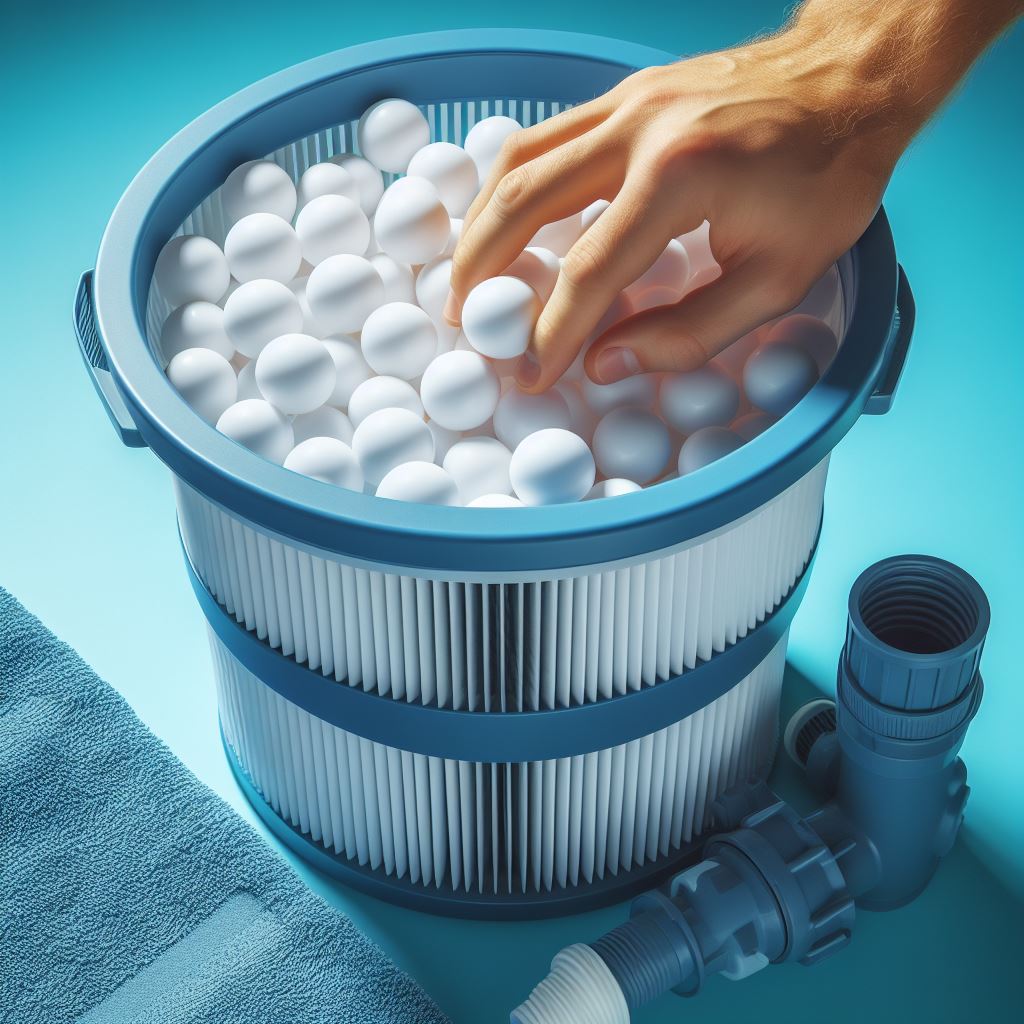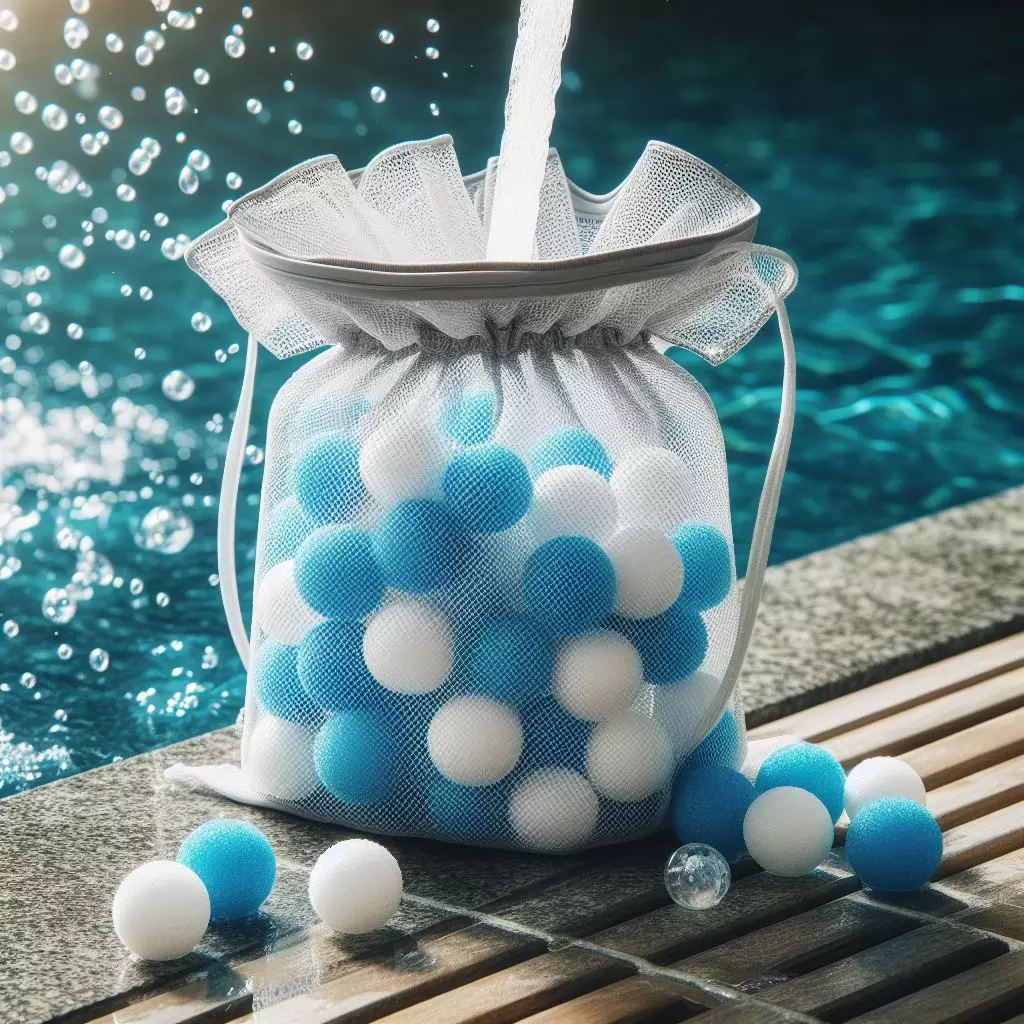Maintaining a clean and well-functioning pool filtration system is essential for ensuring crystal-clear water and a safe swimming environment. Among the various components of a pool filter system, filter balls have gained popularity for their efficiency and ease of use. Made from durable and eco-friendly materials, such as polyethylene or polypropylene, filter balls offer an alternative to traditional filter media like sand or cartridges. However, to maintain optimal filtration performance, it’s crucial to clean and maintain pool filter balls regularly. In this comprehensive guide, we’ll explore the important tips and best practices for cleaning pool filter balls to ensure the longevity and effectiveness of your pool filtration system.

Understanding Pool Filter Balls
Pool filter balls are small, lightweight spheres designed to replace traditional filter media in pool filters. They are typically made from synthetic materials like polyethylene or polypropylene, which are durable, resistant to chemicals, and environmentally friendly. Filter balls are engineered to provide efficient filtration by capturing and trapping debris, dirt, and other contaminants present in the pool water.
Importance of Cleaning Pool Filter Balls
Regular cleaning of pool filter balls is essential to maintain their filtration efficiency and prolong their lifespan. Over time, filter balls can become clogged with debris and contaminants, reducing their ability to effectively trap particles from the water. Additionally, dirty filter balls can impede water flow and strain the pool pump, leading to decreased filtration performance and potential equipment damage. By following proper cleaning procedures, you can ensure that your pool filter balls operate at their best and contribute to clean, clear pool water.
Cleaning Methods for Pool Filter Balls
There are several effective methods for cleaning pool filter balls, depending on the level of contamination and the type of filtration system. Here are some common cleaning methods and tips to consider:
Rinsing with Water: The simplest and most common method for cleaning pool filter balls is rinsing them with water. Use a garden hose or pressure washer to thoroughly rinse the filter balls, removing dirt, debris, and contaminants trapped within the fibers. Ensure that the water pressure is not too high to avoid damaging the filter balls.
Soaking in Cleaning Solution: For more stubborn stains or buildup, you can soak the pool filter balls in a cleaning solution. Prepare a mixture of water and a mild cleaning agent, such as dish soap or pool filter cleaner, in a bucket or container. Submerge the filter balls in the solution and let them soak for several hours or overnight to loosen and dissolve the dirt and debris. After soaking, rinse the filter balls thoroughly with water to remove any residue from the cleaning solution.
Backwashing: Some pool filter systems are equipped with a backwash feature that allows you to reverse the flow of water through the filter media to dislodge and flush out trapped debris. If your pool filter system has a backwash function, follow the manufacturer’s instructions for backwashing the filter balls regularly to keep them clean and maintain optimal filtration performance.
Using a Washing Machine: In some cases, you can clean pool filter balls by placing them in a mesh laundry bag and washing them in a washing machine. Use a gentle cycle with cold water and a mild detergent to avoid damaging the filter balls. After washing, remove the filter balls from the laundry bag and allow them to air dry completely before reinstalling them in the filter system.
Frequency of Cleaning
The frequency of cleaning pool filter balls depends on various factors, including the size of the pool, the level of debris and contaminants, and the type of filtration system. As a general guideline, it’s recommended to clean pool filter balls at least once a month during the swimming season or more frequently if the pool experiences heavy use or significant debris accumulation. Regular inspection of the filter balls for signs of dirt or clogging can help determine when cleaning is necessary.
Additional Tips for Cleaning Pool Filter Balls
Inspect for Damage: Before cleaning pool filter balls, inspect them for any signs of damage, such as tears, fraying, or deformation. Damaged filter balls may not effectively trap debris and could potentially damage the pool filter system. Replace any damaged filter balls with new ones to ensure optimal filtration performance.
Avoid Harsh Chemicals: When cleaning pool filter balls, avoid using harsh chemicals or abrasive cleaners that could damage the filter media. Stick to mild cleaning agents, such as dish soap or pool filter cleaner, to safely and effectively remove dirt and contaminants.
Proper Storage: Store pool filter balls in a clean, dry area when not in use to prevent them from collecting dust or debris. Avoid storing filter balls in direct sunlight or extreme temperatures, as this could cause them to degrade or become discolored over time.
Regular Maintenance: In addition to cleaning pool filter balls, it’s essential to perform regular maintenance on the entire pool filtration system. This includes checking and replacing filter cartridges or other components as needed, inspecting for leaks or damage, and ensuring proper water chemistry and circulation.
Conclusion
Proper cleaning and maintenance of pool filter balls are essential for ensuring optimal filtration performance and prolonging the lifespan of your pool filtration system. By following the tips and best practices outlined in this guide, you can keep your pool filter balls clean and effectively remove debris and contaminants from the water, resulting in clean, clear pool water for swimming enjoyment.

